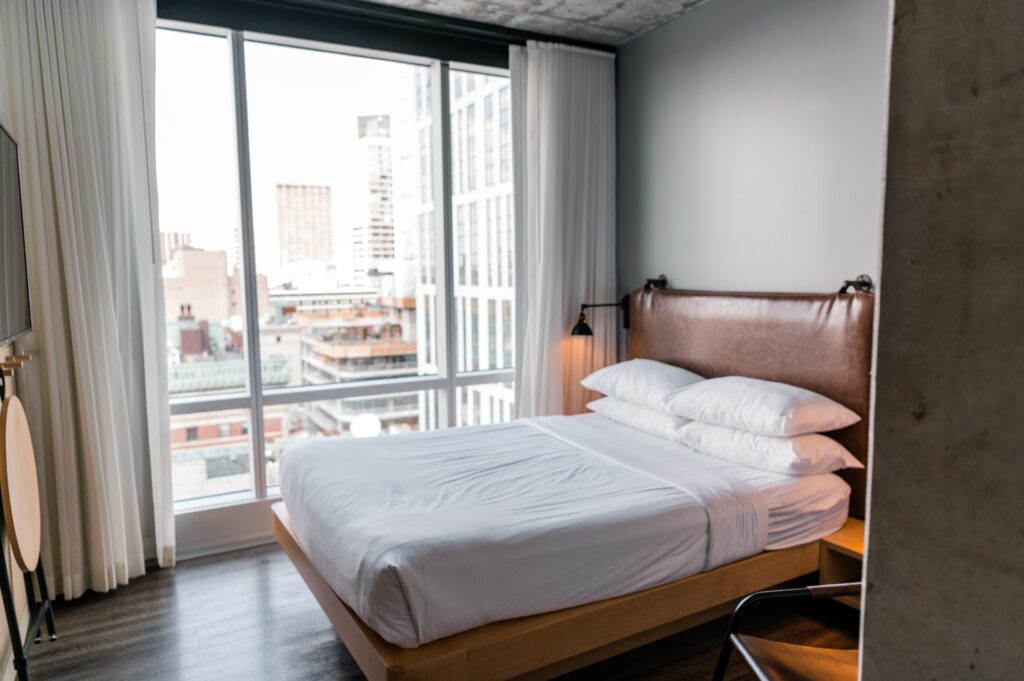Evaluating the Financial Impact of Offering Long-Term Stays
Are you considering turning your property into an Airbnb to generate some extra income? If so, you may have already heard about the potential benefits of offering long-term stays to your guests. Here, we will dive into the financial impact of providing extended stays for Airbnb hosts and help you evaluate whether this strategy can help you maximize your profits.
Rise of Long-Term Stays on Airbnb
Before we dive into the financial aspects, let’s first understand the concept of long-term stays on Airbnb. Traditionally, Airbnb has been associated with short-term rentals, where guests stay for a few nights or a week. However, with the rise of remote work and digital nomadism, there has been a growing demand for accommodations that cater to longer stays.
Long-term stays on Airbnb are typically defined as reservations that last 28 nights or more. This market segment is popular among digital nomads, remote workers, and individuals in need of temporary housing due to relocation or extended business trips.
Now, let’s explore how offering long-term stays can benefit Airbnb hosts financially:
1. Consistent Income
One of the significant advantages of long-term stays is the stability it offers in terms of income. Instead of having to constantly find new guests every few days or weeks, you can have a reliable source of income for an extended period. This can be particularly appealing for hosts who rely on Airbnb as their primary source of income.
2. Higher Rental Rates
When guests book for longer durations, hosts often have the flexibility to offer discounted rates compared to their nightly rates. However, even with the discount, the overall revenue generated from long-term stays can be significantly higher than what you would earn from short-term stays. Additionally, you can save on cleaning fees and other expenses associated with frequent turnover.
3. Reduced Vacancy Rate
By offering long-term stays, you minimize the risk of having vacant periods between bookings. This not only ensures a steady stream of income but also reduces the stress of constantly having to attract new guests. It also saves you time and effort spent on managing multiple bookings and coordinating check-ins and check-outs.

4. Cost Savings
Long-term guests often tend to be more self-sufficient and require fewer amenities compared to short-term guests. This means you can save on utilities, supplies, and maintenance costs. Moreover, with fewer turnovers, you may also spend less on cleaning services or have the opportunity to handle the cleaning yourself, further reducing expenses.
5. Lower Marketing Efforts
By attracting guests who are looking for extended stays, hosts can reduce the need for constant advertising and promotion. Instead, they can focus on providing a great experience for their long-term guests, which can lead to positive reviews and repeat bookings. For example, a host who offers a monthly rental can enjoy a consistent income stream without the need to constantly search for new guests. Additionally, long-term guests often have different needs and expectations compared to short-term guests, which means hosts can tailor their marketing efforts to a specific target audience, saving time and resources.
6. Building Relationships
Long-term stays allow hosts to build stronger relationships with their guests. By providing a comfortable and welcoming environment for an extended period, you can create a sense of loyalty and encourage repeat bookings. Satisfied long-term guests may also recommend your property to their friends and colleagues, expanding your potential customer base.
7. Potential Tax Advantages
It’s essential to consult with a tax professional, but offering long-term stays on Airbnb may provide some tax advantages. In certain jurisdictions, renting out your property for more extended periods may classify it as a residential rental, making you eligible for tax deductions related to property expenses, depreciation, and repairs. These potential tax advantages can further enhance your financial gains as an Airbnb host.

Considerations for Long-Term Stays
While offering long-term stays can be financially rewarding, there are a few considerations to keep in mind:
1. Local Regulations
Before diving into long-term stays, thoroughly research and understand the local regulations governing short-term rentals. Some cities have restrictions on the duration of stays or require specific permits for long-term rentals.
2. Seasonality
Depending on your location, there may be seasonal fluctuations in demand for long-term stays. Consider whether your property is situated in an area that attracts long-term guests throughout the year or primarily during certain periods.
3. Flexibility
Offering long-term stays requires flexibility in terms of availability and pricing. You may need to adjust your minimum stay requirements and offer competitive rates to attract guests. It’s important to find a balance that ensures profitability while meeting the needs of potential long-term guests.
The Bottom Line
In conclusion, offering long-term stays can have a positive financial impact for Airbnb hosts. The consistent income, higher rental rates, and relationship building opportunities make it an attractive option for hosts looking to maximize their profits. However, it’s crucial to consider local regulations, seasonality, and maintain flexibility to ensure long-term success. So, if you’re ready to turn your property into a profitable Airbnb, consider the financial benefits of offering long-term stays and start reaping the rewards today!







